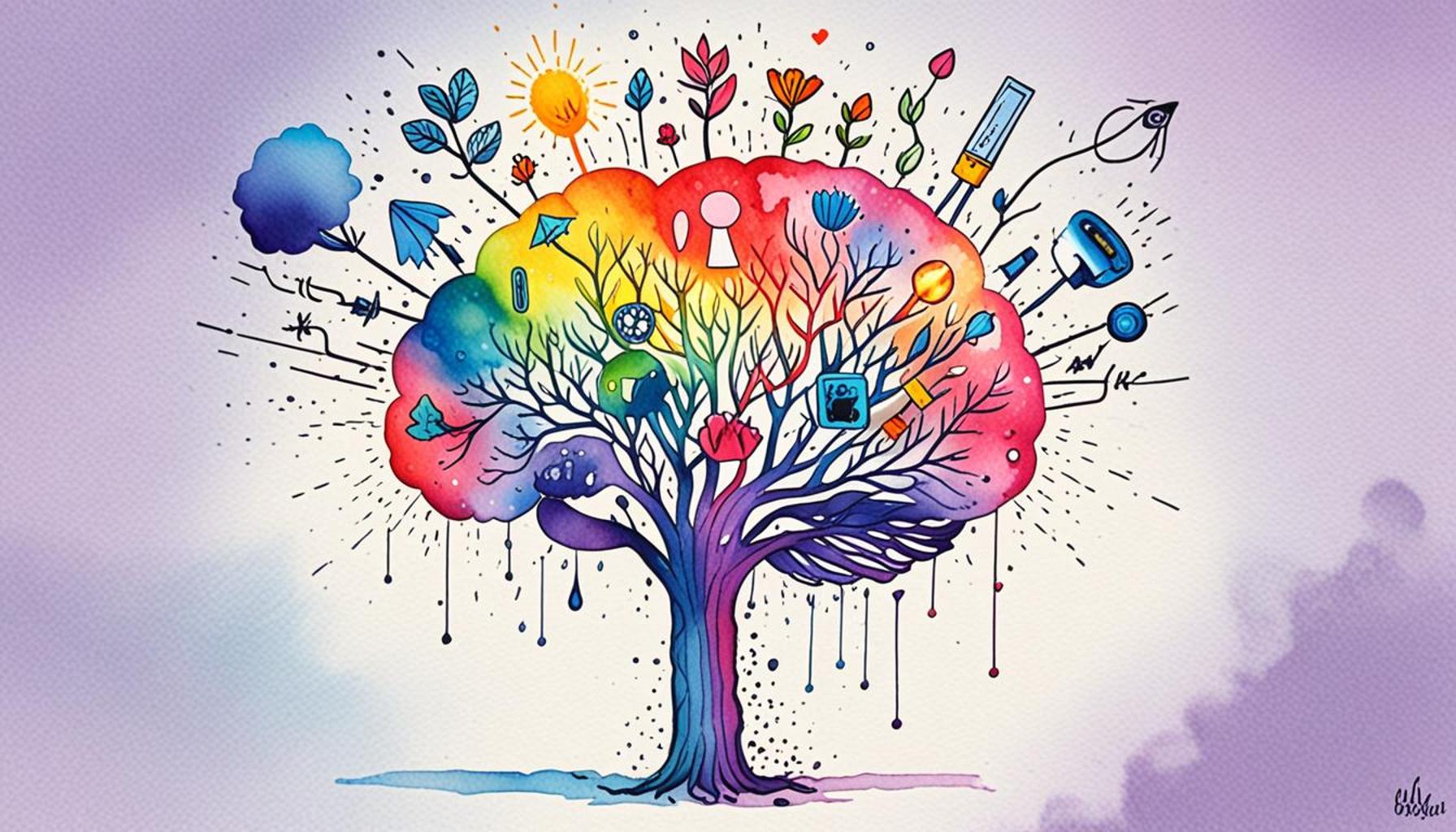Building Resilience Through Adversity: Growth Mindset Strategies for Youth in Nigeria

Understanding Resilience
Resilience is a crucial trait that enables individuals to confront challenges and setbacks with a positive attitude. It goes beyond mere survival; resilience is about thriving in the face of adversity. For Nigerian youth, who often encounter obstacles such as economic instability, high unemployment rates, and social unrest, developing a resilient mindset is essential. Resilience defined can be understood as the ability to adapt and flourish despite these challenges, making it imperative for young Nigerians to cultivate this quality.
The Growth Mindset Approach
A growth mindset serves as a cornerstone in the journey toward resilience. As popularized by psychologist Carol Dweck, a growth mindset encourages individuals to view their abilities and intelligence as qualities that can be developed through dedication and hard work. For young people in Nigeria, this approach can manifest in various ways:
- Embracing Challenges: Instead of shying away from difficult tasks, young Nigerians can learn to welcome challenges as opportunities for growth and development. For instance, a student struggling with mathematics might engage more deeply with the subject, seeking help from peers or tutors rather than avoiding it.
- Learning from Criticism: Constructive feedback is invaluable on the path to success. By reframing criticism as a tool for improvement, Nigerian youth can cultivate a more effective learning experience. An aspiring entrepreneur might solicit feedback on their business ideas to refine and enhance their strategies.
- Persistence in Setbacks: Resilience is often tested during setbacks. Young persons can benefit from stories of local heroes who have overcome various adversities. Whether it’s the tale of an athlete who persevered through injuries or a businesswoman who rose from humble beginnings, these narratives can inspire persistence in young minds.
The Importance for Youth in Nigeria
The development of a growth mindset is particularly significant for fostering mental strength, enhancing problem-solving skills, and promoting emotional well-being among Nigerian youth. In a society where mental health is often overlooked, equipping young people with the tools to manage stress and adversity can lead to healthier communities. Moreover, as they learn to navigate their challenges, they become better prepared to contribute positively to societal issues.
Community Engagement and Local Contexts
A crucial aspect of building resilience in Nigerian youth involves understanding how local contexts influence their experiences. Collaborating with community leaders, educators, and mental health professionals can provide insights that resonate with young Nigerians. For example, community workshops focusing on entrepreneurial skills can inspire resilience by teaching young adults to turn economic challenges into innovative business ventures.
As we explore various strategies to enhance resilience among Nigerian youth, it becomes clear that fostering a growth mindset is not just an individual endeavor. It requires the collective effort of families, communities, and institutions working together to empower the next generation. By viewing obstacles as stepping stones rather than stumbling blocks, young Nigerians can cultivate a brighter future for themselves and their communities. This journey towards resilience is one that should be supported, acknowledged, and celebrated as they continue to forge their paths in a dynamic world.

YOU MAY ALSO LIKE: Read read another article
Empowering Growth Through Education
One of the most effective ways to cultivate a growth mindset among Nigerian youth is through the education system. Education is not merely about rote learning; it’s about encouraging critical thinking, creativity, and problem-solving. By implementing innovative teaching techniques, schools can help students develop resilience when faced with obstacles. For instance, project-based learning encourages students to work collaboratively on real-life problems, fostering a sense of ownership and an understanding of the power of perseverance.
Moreover, integrating life skills education into the curriculum can equip young Nigerians with valuable tools for navigating daily challenges. Subjects focusing on emotional intelligence, conflict resolution, and time management can empower students to face difficulties with confidence. Additionally, providing opportunities for mentorship can amplify this growth mindset, as experienced individuals can share their journeys of overcoming adversity, reinforcing the idea that setbacks can lead to successful outcomes.
Using Technology as a Tool for Resilience
In today’s digital age, technology can play a pivotal role in promoting resilience among the youth in Nigeria. Online platforms and social media can serve as channels for inspiration, allowing young people to connect with thought leaders and innovators from around the world. Access to motivational webinars, online courses, and forums can expose them to diverse perspectives and strategies for overcoming obstacles. For example, Nigerian youth can benefit from platforms like LinkedIn Learning, where they can gain skills and insights from experts in various fields.
The availability of resources like educational apps and websites encourages continuous learning. Young individuals can enhance their skills in areas such as coding, entrepreneurship, and digital marketing, arming them with the knowledge to thrive in a competitive job market. By redefining their relationship with technology, Nigerian youth can leverage it as a catalyst for personal and professional growth.
Fostering Community Support
Community support plays an integral role in building resilience. In Nigerian culture, strong communal ties can foster an environment where individuals share their struggles and successes. Initiatives that promote peer support networks can help diminish the stigma surrounding failure and encourage sharing experiences. Schools and local organizations can facilitate group discussions or forums centered on mental health and resilience, where young people can connect and learn from one another.
- Peer Mentoring Programs: Establishing mentorship programs where older students or community members guide younger individuals can create a nurturing environment that emphasizes growth over perfection.
- Art and Culture Initiatives: Engaging youth in artistic and cultural activities can provide them with a creative outlet to express their emotions and build resilience through storytelling.
- Sports and Team Activities: Participation in sports or team-based activities instills discipline, teamwork, and a sense of belonging—crucial factors that foster a resilient mindset.
As these community support structures strengthen, young Nigerians will be better equipped to navigate the myriad of challenges before them. By working together, they can foster an atmosphere where resilience is nurtured and celebrated, leading to a brighter and more hopeful future.
Building Resilience Through Adversity: Embracing a Growth Mindset
In Nigeria, where youth often face significant challenges such as economic instability, educational barriers, and societal pressures, fostering a growth mindset can be transformative. When young people are encouraged to view obstacles as opportunities for learning, they become more adaptable to life’s unpredictability. This adaptability is crucial, especially in a society where resilience is necessary for personal and communal development.Educational initiatives focusing on cultivating a growth mindset can have profound implications. Programs that promote reflection on failure and persistence teach youth that intelligence and abilities can be developed through dedication and hard work. For instance, workshops designed to challenge the conventional beliefs about failure can help youths develop strategies to overcome setbacks, be it in academics, sports, or any other field of interest.Moreover, the integration of storytelling can play a significant role in these programs. By sharing experiences of local heroes who have successfully navigated adversities, youths can relate to and draw inspiration from their stories. This not only builds a sense of community but also reinforces the notion that resilience can be nurtured. As the youth engage with their community and strive toward their goals with determination and tenacity, they are more likely to break the cycle of adversity. This change fosters not just personal growth, but societal transformation, proving that resilience can indeed be built through adversity. Now, let’s explore how to leverage this growth mindset through practical strategies in our next table.
| Category | Advantages |
|---|---|
| Resilience Development | Empowers youth to face challenges with courage, promoting mental fortitude. |
| Community Engagement | Encourages young individuals to connect with their peers and mentors, fostering mutual support. |
With the right strategies, Nigerian youth can develop a profound resilience that not only aids in their personal journeys but also contributes to the strength of their communities.
YOU MAY ALSO LIKE: Read read another article
Leveraging Personal Experiences to Build Resilience
In the journey of building resilience, personal experiences stand as invaluable teachers. Nigerian youth are often faced with unique challenges, whether it’s academic pressure, family expectations, or socio-economic constraints. By embracing their hardships as opportunities for growth, young individuals can cultivate a more resilient mindset. For instance, sharing stories of perseverance through community forums can help demystify the challenges faced, illustrating that obstacles are a universal experience.
Young Nigerians can harness their stories of struggle and success by participating in local storytelling events or literature festivals. Platforms like these celebrate oral traditions, providing a space for youth to voice their journeys, inspire peers, and reinforce the notion that setbacks are merely stepping stones to success. In line with this, initiatives such as the “It’s Not Your Fault” project actively promote discussions on personal failures and experiences, aiding young people in realizing that their circumstances are shared, and resilience can be built together.
Encouraging Innovation and Entrepreneurship
With the rise of tech hubs and innovation centers throughout Nigeria, opportunities for fostering a growth mindset are blossoming. Encouraging youth to explore entrepreneurship can be a powerful avenue for developing resilience. Engaging in entrepreneurial activities requires individuals to embrace failure as a potential outcome, learning from missteps along the way. Young entrepreneurs can harness resources from organizations like the Tony Elumelu Foundation, which provides mentorship and funding for startups, creating a robust ecosystem where youth can innovate without the fear of failure.
Programs that support entrepreneurial education at the secondary and tertiary levels can inspire students to think outside the box. Practical workshops that focus on business planning, budgeting, and marketing strategies can transform theoretical knowledge into practical skills, effectively equipping youth with the tools they need to navigate the competitive landscape of business. As they immerse themselves in entrepreneurial ventures, young Nigerians will inevitably face challenges that will hone their resilience skills, reinforcing their belief in the value of perseverance.
Health and Wellbeing as a Foundation for Resilience
Understanding the connection between mental health and resilience is crucial for Nigerian youth. In a society where mental health issues often go unaddressed due to stigma, promoting mental wellness can lead to the development of a more resilient generation. Educational institutions and community organizations should prioritize mental health awareness programs, emphasizing the importance of seeking help and practicing self-care.
Initiatives like stress management workshops or mental health first-aid training can empower youth to take proactive steps in their mental wellbeing. Additionally, introducing forms of physical activity, such as traditional dances or sports, can offer therapeutic benefits, encouraging both physical and mental resilience. For instance, community-based sports leagues not only provide a sense of belonging but also teach valuable lessons around teamwork, discipline, and perseverance in the face of defeat.
As the youth of Nigeria engage in these multifaceted resilience-building strategies, they are likely to emerge with a stronger sense of self-efficacy. With education, community support, personal experiences, entrepreneurial initiatives, and a focus on mental health, these young individuals can learn to transform adversity into a powerful springboard for success and personal growth.
SEE ALSO: Click here to read another article
Conclusion
Building resilience through adversity is not merely a theoretical concept; it is a vital necessity for the youth of Nigeria. As we have explored, embracing a growth mindset through personal stories, innovation, and mental health awareness can fundamentally transform how young people perceive challenges in their lives. In a nation where societal expectations and economic realities perpetually test the fabric of its youth, developing resilience becomes a beacon of hope and strength.
We have seen how initiatives promoting storytelling can create community connections, while entrepreneurial programs offer practical skills and experiences that redefine failure as a pathway to success. Moreover, prioritizing mental health is crucial in enabling young individuals to navigate their emotional landscape, ensuring they are equipped not only to face life’s difficulties but to thrive in spite of them.
As Nigerian youth embrace these frameworks, they foster a future generation that views adversity as an integral part of their journey, providing the fuel needed for personal and collective growth. Emphasizing the importance of educational reforms, community-based support systems, and resources for mental wellness can create a ripple effect, leading to a stronger, more resilient society overall. Ultimately, the journey of resilience is ongoing and collaborative; it thrives on shared experiences and collective empowerment, inviting every youth in Nigeria to become active participants in their development journey.
By steadfastly supporting one another and prioritizing these resilience-building strategies, we nurture not only individual potential but also the promise of a more robust and united Nigeria.



